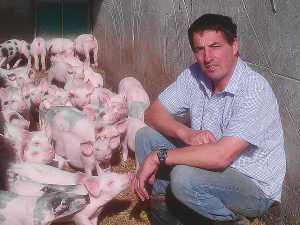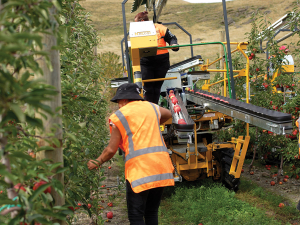Submissions are now open on the Consumers’ Right to Know (Country of Origin of Food) Bill until May 18 – with backing from NZ Pork and Horticulture NZ.
The bill passed its first reading in Parliament after the Government had a change of heart and supported the Green Party initiative.
Primary production committee chair Ian McKelvie says the issue is important to many NZers and he encourages people to have their say.
This bill requires the origin of fruit, vegetables, meats, seafood and other single-ingredient food to be labelled or shown at the point of sale. It also introduces offences for misleading statements on the label of single-ingredient food.
NZ Pork says cross-party support for the bill, heading to the select committee stage, is a true reflection of Kiwi consumers’ attitudes. The pork industry lobby has called for all parties to back it.
It claims, according to consumer research now underway, that NZers expect the meat they buy here to be from animals born and raised here.
NZ Pork chairman Ian Carter says about 60% of pork sold in NZ is imported from 20 countries.
NZ Pork is refreshing its labelling for NZ-grown pork products to emphasise both country of origin and its PigCare accreditation programme. Carter says the label will highlight that pork products are sourced from pigs born and raised in NZ and farmed with care – with welfare at the centre of the farming practice.
The accreditation programme, developed by Massey University with the support of vets, pig farmers, NZ Pork and MPI, is described as a world-class assessment of animal welfare.
“We hope as this bill progresses more of our elected representatives will recognise the wishes of their constituents and provide the opportunity for local consumers to understand more about where their food is sourced,” says NZ Pork.
Horticulture NZ says a recent survey showed at least 70% of NZers want mandatory country of origin labelling (CoOL) of fresh fruit and vegetables.
HortNZ says it will encourage people to make submissions to the select committee and, as it is election year, it will also start a movement via Facebook to enable people to ask their local MPs what they are going to do about meeting people’s demands for mandatory CoOL.
This law will not be enacted by the September general election, so people need to be clear what the next Government’s stance will be, HortNZ says.
“There are a lot of misconceptions and myths about CoOL,” says Chapman.
“Voluntary CoOL has been adopted by major supermarkets but there is no consistency across the board, which is why it needs to be mandatory. For example, people make assumptions about what they are buying at those local
Saturday markets that spring up in neighbourhoods around NZ, but not all the produce meets expectations of being fresh and locally grown.
“There are no trade issues; most of our trading partners have CoOL and our exporters certainly trade on coming from NZ, as people pay a premium for that.”
HortNZ is asking for single-ingredient fresh fruit and vegetables to have mandatory CoOL.
“This does not mean we are asking for complicated label changes, or every piece of fresh fruit and vegetable to have individual labels.
“The sensible approach is to label the bin the fresh fruit or vegetables are in.”



















